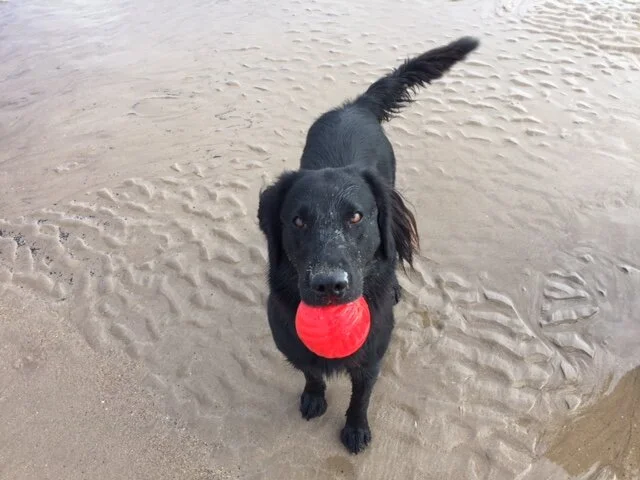Dangers on the Beach
13th August 2021 | Posted by The Team at Coquet Vets
Photo: Coquet Vets, 2020
We are very lucky to have such amazing beaches along our stunning coastline. These can be amazing places for dogs to exercise and have fun, but it is important to be aware of some of the possible dangers.
Temperatures
It may feel cooler in sea breezes, but temperatures can still soar and cause heatstroke. Make sure your dog has constant access to a cool, shaded area and fresh water. Avoid the hottest parts of the day and be ready to head home if your dog has had enough. Be extra careful if you have a brachycephalic breed (shorter nose), as these struggle more than other dogs in the heat.
Sea swimming
Not all dogs can swim! Some short-legged breeds, like corgis, find it especially hard and all dogs of any breed will need to learn how to swim. If you don’t know whether your dog can swim, testing it in the sea can be very dangerous.
Sand
Eating sand deliberately or accidentally can be incredibly dangerous as it impacts in dog’s intestines and causes a blockage. This is an emergency situation, and they will require surgery to remove the blockage. Even throwing toys on a beach can cause dogs to accidentally swallow sand. Throwing balls on the beach can also cause your dog’s teeth to grind down, this can eventually lead to dental problems such as exposed tooth pulp and difficulty chewing.
Image: Coquet Vets, 2020
Seawater
Try not to let your dog drink sea water, as it can make them sick. Make sure they have fresh water to drink at all times and rinse them off when you leave the beach or when you get home. This will stop them licking any salt water off their fur and prevent it making their skin sore.
Tides
Always check tide times before you visit the beach. This will help keep your whole family safe.
Seaweed
Seaweed stalks can be incredibly dangerous if eaten as they can cause a blockage in your dog’s intestine. Dried seaweed can also cause a problem as it expands when it’s eaten.
Jellyfish
Some types of Jellyfish can give a nasty sting to people and dogs, so check the water before swimming and don’t let dogs investigate washed up jellyfish on the beach.
If this article has raised any concerns, don’t hesitate to call us on 01665 252 250.




